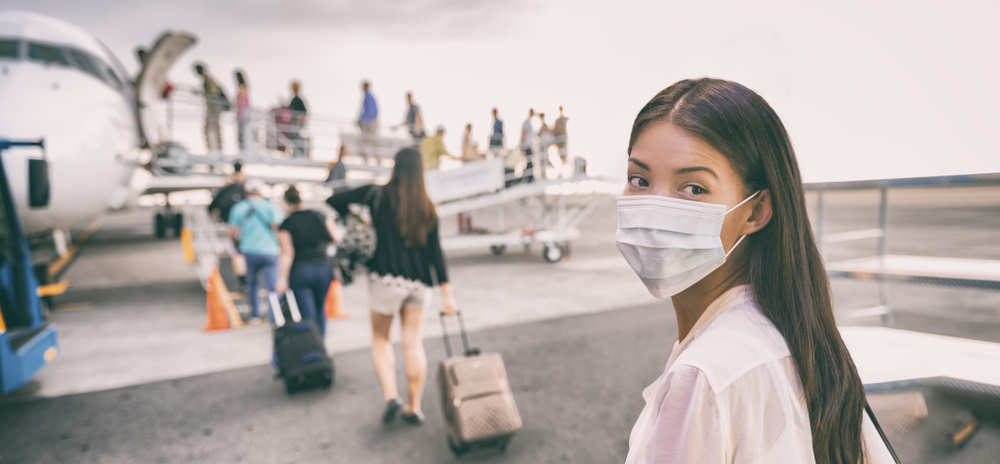
As coronavirus restrictions have begun to ease across the country, many people are venturing back out and attempting to salvage their summer vacation plans. While your travel plans may look drastically different this year than they have in the past, you can still plan a safe and healthy getaway if you follow the recommended safety measures.
Follow these tips to protect yourself and your family if you decide to travel this summer.
1. Maintain social distancing
With the warmer weather and the easing of restrictions, many people have been flocking to public areas such as beaches and bars. But the pandemic is far from over. Florida recently reported a new single-day record of more than 5,500 new coronavirus cases. Other parts of the US are also reporting high increases, including Arizona, Arkansas, California, North Carolina, South Carolina, Tennessee, and Texas. (You can find the latest numbers broken down by state, here).
When traveling this summer, you’ll need to be as flexible as possible. If your family vacations typically involve crowded destinations such as the beach or theme parks, now is a good opportunity to explore more secluded locations. Consider a family camping trip or a sight-seeing road trip where your exposure to other people will be limited.
2. Plan ahead
Make sure you understand the regulations and expectations of the areas you’re planning on visiting. Don’t assume that all businesses and services will be open. For example, if you’re traveling from the Midwest, where restrictions have been more relaxed, to an area where cases have been higher, expect to see some differences. Restaurants and bars may be closed except for carry-out orders, and businesses that are open may require masks.
3. Wear a mask
Even if masks aren’t required, you should consider wearing one anytime you’re in public and around people. Public health experts are advocating wide-spread use of masks to slow down the spread. Wearing a mask doesn’t just protect yourself; it also protects others from potentially being infected by you. Many cases of COVID-19 have been transmitted by people who were infected but didn’t know it because they didn’t experience any symptoms.
Make sure every family member has their own mask and keep it handy for use whenever you’re around other people. They aren’t required all the time, like when you’re in the car with just your family, but they should be worn in public places such as public transportation, stores, gas stations, and rest areas.
4. Practice good hygiene
Continue to treat proper hygiene and hand-washing of the utmost importance. Try to avoid touching anything in public, and wash your hands whenever you do. Carry hand sanitizer for instances when you can’t wash your hands or when you have to touch something after you do. Continue to avoid touching your face, and always wash your hands before eating.
5. Cover your mouth when you cough or sneeze
We should always be practicing good hygiene when coughing or sneezing, especially in public. If you’re wearing a mask, keep your mask on when you sneeze or cough. It’ll be uncomfortable, but the whole point of wearing a mask is to avoid spreading germs. If you aren’t wearing a mask, cough or sneeze into your elbow. Never cough or sneeze into your hand.
Tips for flying
If you decide to fly this summer, make sure you understand your airline’s regulations. Many require masks for all individuals while on the plane. Airlines may also not be offering in-flight service, and airport restaurants and coffee shops may be closed. Bring your own food if necessary, or look for restaurants at airports that are offering mobile ordering. Continue to maintain social distancing in airport terminals as much as possible. Pack disinfecting wipes in your carry-on bag and use them to wipe down surfaces that you need to touch, such as your seatbelt buckle, TV screen, and tray table.
The world after COVID may take a while to return to the “normal” that we’re used to, but by being smart and practicing good hygiene, we can be safe while venturing back out into public places. Do your part to protect your health and the health of those around you.